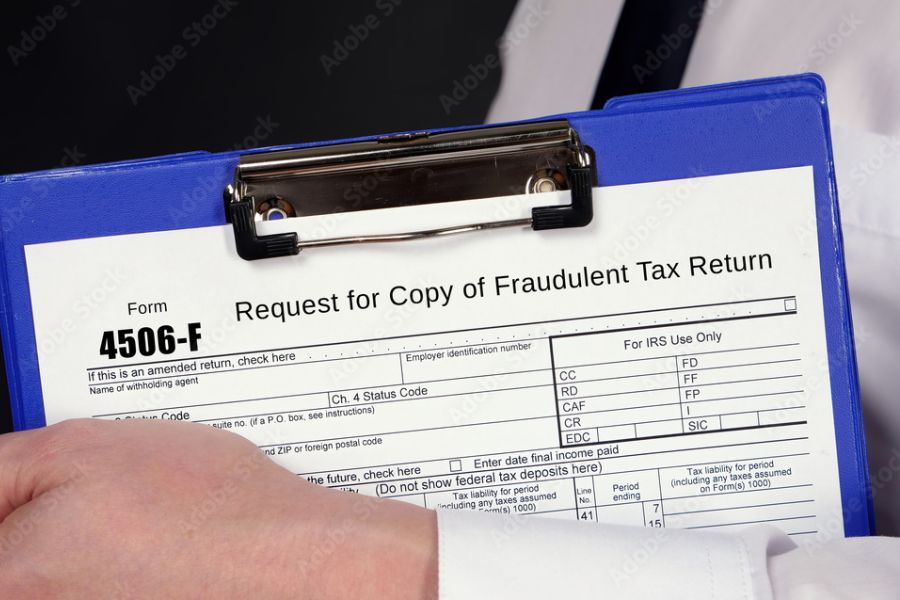If you operate a business, or you’re starting a new one, you know you need to keep records of your income and expenses. Specifically, you should carefully record your expenses in order to claim all of the tax deductions to which you’re entitled. And you want to make sure you can defend the amounts reported on your tax returns in case you’re ever audited by the IRS. Be aware that there’s no one way to keep business records. But there are strict rules when it comes to keeping records and proving expenses are legitimate for tax purposes. Certain types of expenses, such as automobile, travel, meals and home office costs, require special attention because they’re subject to special recordkeeping requirements or limitations. Here are two recent court...

Many fraud investigations focus on financial statements. Because cash is the most commonly stolen business asset, fraud experts regularly scrutinize statements of cash flow for signs of misappropriation and fraudulent disbursements. If you suspect occupational fraud and request an investigation, here’s what the experts might find. Unusual changes Your statement of cash flows shows how cash changed during the year. Forensic accountants generally look for amounts that seem unreasonable and for increases or decreases in accounts that seem to contradict trends in operating cash flows or other financial information. The statement of cash flows is typically broken down into three categories: Cash from operations, Cash from investing activities, and Cash from financing activities. Fraud experts often apply ratio analysis to detect unusual changes that might indicate fraud — for...
Summer is just around the corner. If you’re fortunate enough to own a vacation home, you may wonder about the tax consequences of renting it out for part of the year. The tax treatment depends on how many days it’s rented and your level of personal use. Personal use includes vacation use by your relatives (even if you charge them market rate rent) and use by non-relatives if a market rate rent isn’t charged. If you rent the property out for less than 15 days during the year, it’s not treated as “rental property” at all. In the right circumstances, this can produce significant tax benefits. Any rent you receive isn’t included in your income for tax purposes (no matter how substantial). On the other hand, you...
An experienced business valuation professional considers more than just a company’s financial statements when quantifying its value. The professional conducts detailed interviews and asks for a variety of documents when gathering information to use to value the business — and some of this information may provide objective insight into how much the owners believe the business is worth. Here are some key examples. Buy-sell agreements Shareholders often protect their business interests with buy-sell agreements that contain valuation formulas to be used on a shareholder’s death or termination. Some detailed buy-sell agreements may even specify whether valuation discounts apply and, if so, how much. But if a buy-sell agreement has been superseded or is otherwise outdated, it may not be as relevant to current market values. Life insurance policies Life...
Typically, businesses want to delay recognition of taxable income into future years and accelerate deductions into the current year. But when is it prudent to do the opposite? And why would you want to? One reason might be tax law changes that raise tax rates. There have been discussions in Washington about raising the corporate federal income tax rate from its current flat 21%. Another reason may be because you expect your non-corporate pass-through entity business to pay taxes at higher rates in the future, because the pass-through income will be taxed on your personal return. There have also been discussions in Washington about raising individual federal income tax rates. If you believe your business income could be subject to tax rate increases, you might want to accelerate...
In Fact Sheet 2022-25, the IRS has provided information about how taxpayers should handle non-tax and tax-related identity theft. When a taxpayer believes their personal information is being used to file fraudulent tax returns, they should submit a Form 14039, Identity Theft Affidavit, to the IRS. But in most cases, taxpayers do not need to complete this form. Only victims of tax-related identity theft should submit the Form 14039, and only if they haven't received certain letters from the IRS. All taxpayers can request an Identity Protection Personal Identification Number (IP PIN) using the Get An Identity Protection PIN (IP PIN) tool on IRS.gov to protect themselves from becoming a victim of tax-related identity theft. What is tax-related identity theft? Tax-related identity theft occurs when someone uses a taxpayer's...
(This is Blog Post #1189)...
Once a relatively obscure concept, “income in respect of a decedent” (IRD) may create a surprising tax bill for those who inherit certain types of property, such as IRAs or other retirement plans. Fortunately, there may be ways to minimize or even eliminate the IRD tax bite. Basic rules For the most part, property you inherit isn’t included in your income for tax purposes. Items that are IRD, however, do have to be included in your income, although you may also be entitled to an IRD deduction on account of them. What’s IRD? It is income that the decedent (the person from whom you inherit the property) would have taken into income on his or her final income tax return except that death interceded. One common IRD item...
If your business doesn’t already have a retirement plan, now might be a good time to take the plunge. Current retirement plan rules allow for significant tax-deductible contributions. For example, if you’re self-employed and set up a SEP-IRA, you can contribute up to 20% of your self-employment earnings, with a maximum contribution of $61,000 for 2022. If you’re employed by your own corporation, up to 25% of your salary can be contributed to your account, with a maximum contribution of $61,000. If you’re in the 32% federal income tax bracket, making a maximum contribution could cut what you owe Uncle Sam for 2022 by a whopping $19,520 (32% times $61,000). More options Other small business retirement plan options include: 401(k) plans, which can even be set up for...
Despite the robust job market, there are still some people losing their jobs. If you’re laid off or terminated from employment, taxes are probably the last thing on your mind. However, there are tax implications due to your changed personal and professional circumstances. Depending on your situation, the tax aspects can be complex and require you to make decisions that may affect your tax picture this year and for years to come. Unemployment and severance pay Unemployment compensation is taxable, as are payments for any accumulated vacation or sick time. Although severance pay is also taxable and subject to federal income tax withholding, some elements of a severance package may be specially treated. For example: If you sell stock acquired by way of an incentive stock option...
- 1
- 2
- 3
- 4
- 5
- 6
- 7
- 8
- 9
- 10
- 11
- 12
- 13
- 14
- 15
- 16
- 17
- 18
- 19
- 20
- 21
- 22
- 23
- 24
- 25
- 26
- 27
- 28
- 29
- 30
- 31
- 32
- 33
- 34
- 35
- 36
- 37
- 38
- 39
- 40
- 41
- 42
- 43
- 44
- 45
- 46
- 47
- 48
- 49
- 50
- 51
- 52
- 53
- 54
- 55
- 56
- 57
- 58
- 59
- 60
- 61
- 62
- 63
- 64
- 65
- 66
- 67
- 68
- 69
- 70
- 71
- 72
- 73
- 74
- 75
- 76
- 77
- 78
- 79
- 80
- 81
- 82
- 83
- 84
- 85
- 86
- 87
- 88
- 89
- 90
- 91
- 92
- 93
- 94
- 95
- 96
- 97
- 98
- 99
- 100
- 101
- 102
- 103
- 104
- 105
- 106
- 107
- 108
- 109
- 110
- 111
- 112
- 113
- 114
- 115
- 116
- 117
- 118
- 119
- 120
- 121
- 122
- 123
- 124
- 125
- 126
- 127
- 128
- 129
- 130
- 131
- 132
- 133
- 134
- 135
- 136











